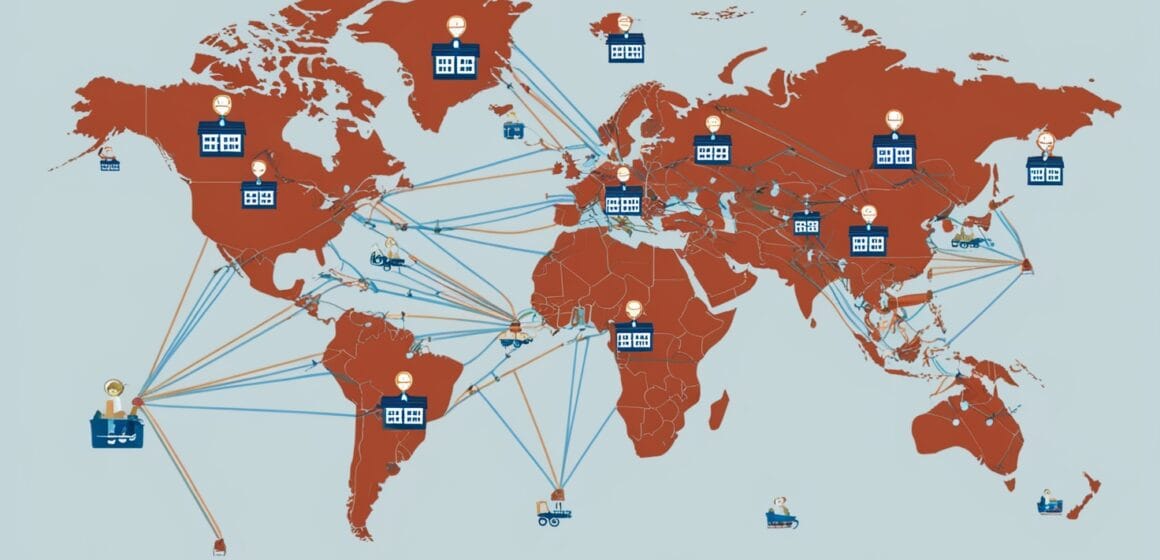In today’s interconnected world, global trade agreements play a pivotal role in shaping the landscape of international commerce. For small businesses, understanding these agreements is crucial as they navigate opportunities and challenges in a competitive market. In this blog post, we will explore how global trade agreements impact small business operations, growth prospects, and strategies for success.
Understanding Global Trade Agreements
Global trade agreements are treaties between two or more countries that aim to foster trade by reducing barriers such as tariffs, quotas, and import/export regulations. Examples of such agreements include the North American Free Trade Agreement (NAFTA), the Comprehensive and Progressive Agreement for Trans-Pacific Partnership (CPTPP), and the European Union’s trade policies. These agreements create a framework for countries to conduct business more easily.
Benefits of Global Trade Agreements for Small Businesses
1. Access to New Markets
One of the most significant advantages of global trade agreements for small businesses is the access they provide to new markets. By reducing tariffs and simplifying trade regulations, these agreements allow small businesses to expand their reach beyond domestic borders. This can lead to increased sales and revenue as they attract customers in foreign markets.
2. Cost Savings
Trade agreements often lower the costs associated with importing and exporting goods. Small businesses can benefit from reduced tariffs, which lower the price of raw materials sourced from abroad. Additionally, simplified customs procedures can lead to faster turnover times, reducing operational costs overall. This cost savings enables small businesses to reinvest in growth initiatives or offer competitive pricing.
3. Enhanced Competitiveness
In a global market, small businesses face competition not only from local firms but also from international players. Trade agreements can level the playing field by offering your small business access to competitive materials and technologies. By leveraging the benefits of these agreements, small businesses can innovate and improve their offerings, ultimately enhancing their competitiveness.
4. Improved Supply Chains
Global trade agreements often result in more efficient supply chains. Small businesses can take advantage of streamlined logistics and shipping routes that arise from such agreements. This means quicker turnaround times for products, improved inventory management, and more reliable delivery to customers—all of which are vital for sustaining operations and fostering customer loyalty.

Challenges Posed by Global Trade Agreements
1. Compliance and Regulatory Changes
While trade agreements open up new avenues, they can also introduce complexities. Small businesses must navigate the nuances of compliance with foreign regulations and standards. Adhering to these rules can require additional resources and expertise that small businesses may lack, raising operational challenges.
2. Increased Competition
While trade agreements provide opportunities, they also increase competition from foreign businesses that may offer similar products at lower prices. Small businesses may find it challenging to compete against larger international firms with more resources. To thrive, small businesses must enhance their value propositions, such as superior customer service or unique offerings.
3. Economic Dependency
Relying heavily on international markets can expose small businesses to economic fluctuations and geopolitical instability. Events such as trade wars, tariffs, or economic sanctions can disrupt external sales and supply chains. Small businesses should develop strategies to mitigate these risks, including diversifying markets or sourcing materials locally.
Strategies for Small Businesses to Leverage Global Trade Agreements
1. Research and Understand Relevant Agreements
The first step for small business owners is to research and understand the global trade agreements that impact their industry. Familiarizing themselves with the terms and benefits allows small businesses to take advantage of the opportunities presented.
2. Build Strong Networks
Forming partnerships with other businesses, trade associations, and government agencies can provide valuable insights and resources. Networking helps small businesses stay informed about changes in trade agreements and best practices for navigating new markets.
3. Invest in Technology and Resources
Investing in technology solutions can assist small businesses in managing compliance and navigating foreign regulations. Additionally, allocating resources for training and education can prepare staff to handle international transactions more efficiently.
4. Maintain Flexibility
The global trade landscape is constantly changing. Small businesses should maintain flexibility in their operations and strategies, allowing them to pivot quickly in response to shifts in the international market. This adaptability can be a crucial factor in long-term success.
Conclusion
Global trade agreements undeniably influence small business operations, offering both opportunities and challenges. By understanding the implications of these agreements, leveraging benefits, and addressing potential obstacles, small businesses can position themselves for growth in an increasingly global economy. Embracing these changes and proactively strategizing can lead to sustainable success and strengthened market presence.




Leave a Reply